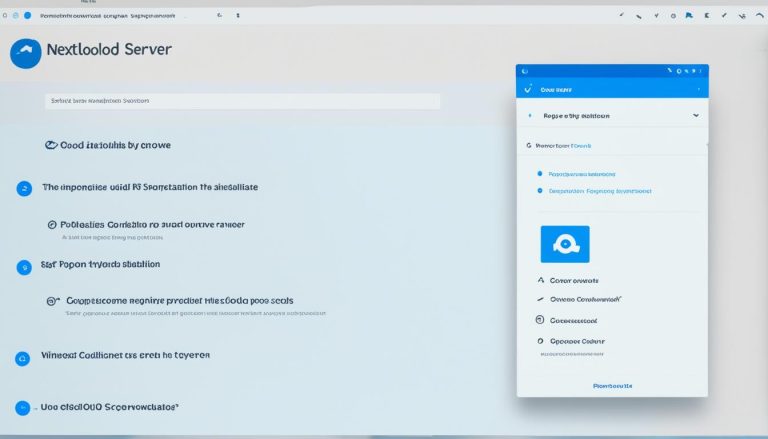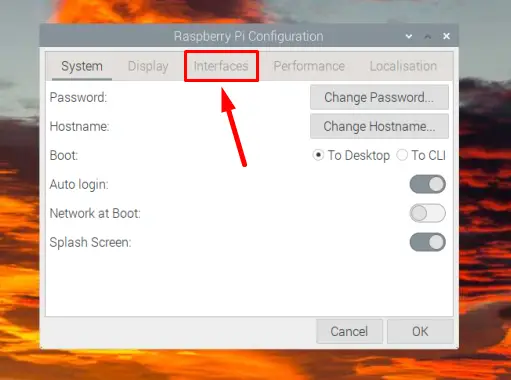Understanding What is Oracle Linux: A Thorough Insight
Oracle Linux is a highly optimized and secure operating environment designed specifically for application development and deployment. With its robust set of features and advantages, Oracle Linux offers businesses a reliable and efficient solution for their computing needs.
As an alternative to Red Hat Enterprise Linux (RHEL), Oracle Linux provides stability and compatibility while offering additional benefits. It incorporates the Unbreakable Enterprise Kernel (UEK) and the Red Hat Compatible Kernel (RHCK), ensuring access to the latest innovations and optimizations for enhanced performance and security.
Oracle Linux stands out with its comprehensive set of features. It includes tools for virtualization, management, automation, and cloud-native computing, all in a single offering. With features like zero-downtime updates with Ksplice, security and compliance certifications, and cloud-native tools for DevSecOps, Oracle Linux empowers businesses to develop and deploy applications seamlessly.
Key Takeaways:
- Oracle Linux is a highly optimized and secure operating environment for application development and deployment.
- It offers stability and compatibility as an alternative to Red Hat Enterprise Linux (RHEL).
- Oracle Linux provides features like zero-downtime updates with Ksplice, security and compliance certifications, and cloud-native tools for DevSecOps.
- With the Unbreakable Enterprise Kernel (UEK) and the Red Hat Compatible Kernel (RHCK), Oracle Linux ensures access to the latest performance and security optimizations.
- By choosing Oracle Linux, businesses can benefit from enhanced performance, improved security, simplified operations, and cost savings.
Oracle Linux Overview
Oracle Linux is a versatile operating system that offers a wide range of benefits and advantages for businesses. With its flexible deployment options and comprehensive set of features, Oracle Linux stands out among other operating systems in the market.
Benefits of Oracle Linux
- Increased Security: Oracle Linux prioritizes security measures, providing features like FIPS 140-2 validation and the use of SELinux. This ensures a reliable and secure platform for enterprises.
- Improved Performance: Oracle Linux is optimized to deliver exceptional performance, making it the recommended operating system for running Oracle Database. Its advanced end-to-end data integrity solutions and optimized transaction performance contribute to enhanced performance.
- Simplified and Automated Operations: Oracle Linux offers management tools like Oracle Enterprise Manager and Oracle Linux Manager, enabling users to streamline and automate operations. This results in increased efficiency and productivity.
- Proven Reliability: With extensive testing and certification by Oracle engineers, Oracle Linux provides proven reliability for running critical workloads and applications. Its compatibility with Red Hat Enterprise Linux ensures seamless integration and peace of mind for businesses.
- Lower Total Cost of Ownership (TCO): Oracle Linux offers cost savings for businesses with its lower TCO compared to other operating systems. By choosing Oracle Linux, businesses can reduce expenses while benefiting from its comprehensive features and support options.
Oracle Linux vs Other Operating Systems
When comparing Oracle Linux to other operating systems, it becomes evident that Oracle Linux offers unique advantages that set it apart:
| Feature | Oracle Linux | Other Operating Systems |
|---|---|---|
| Zero-Downtime Patching | Oracle Linux provides zero-downtime patching with Ksplice, allowing businesses to apply security updates without disrupting operations. | Other operating systems may not offer seamless patching capabilities, leading to potential downtime during updates. |
| Kernel Support | Oracle Linux supports both the Unbreakable Enterprise Kernel (UEK) and Red Hat Compatible Kernel (RHCK), providing users with flexibility and choice. | Other operating systems may only support a single kernel, limiting options for users. |
| Compatibility with Red Hat Enterprise Linux (RHEL) | Oracle Linux is fully compatible with Red Hat Enterprise Linux (RHEL), allowing businesses to seamlessly migrate applications from RHEL to Oracle Linux. | Other operating systems may not offer the same level of compatibility with RHEL, making application migration more challenging. |
Overall, Oracle Linux offers a robust and secure operating system that delivers exceptional benefits for businesses. With its unique features, performance optimizations, and compatibility, Oracle Linux is a compelling choice for enterprises seeking a reliable and cost-effective solution.
Oracle Linux Features
Oracle Linux offers a wide range of features that enhance performance, security, and manageability for businesses. Whether you are a developer, IT administrator, or system architect, these features provide a solid foundation for your infrastructure. Let’s take a closer look at some of the key features:
Unbreakable Enterprise Kernel (UEK)
The Unbreakable Enterprise Kernel (UEK) is a highly optimized and high-performance kernel that is specifically designed for Oracle Linux. It includes the latest Linux innovations and optimizations, ensuring superior performance and stability for your applications.
Zero-Downtime Updates with Ksplice
Ksplice is a unique feature of Oracle Linux that allows you to apply updates without the need to reboot your system. This ensures that your applications and services remain available and secure, even during critical patching processes. With Ksplice, you can save time and avoid disruptions to your business operations.
Secure Virtualization with KVM
Oracle Linux provides support for Kernel-based Virtual Machine (KVM), a powerful virtualization technology that allows you to create and manage virtual machines on your infrastructure. KVM ensures a secure and efficient virtualization environment, enabling you to consolidate workloads and optimize resource utilization.
Comprehensive Cloud-Native Development Support
Oracle Linux offers extensive support for cloud-native development, making it an ideal choice for modern application architectures. With built-in support for Kubernetes and container runtimes, you can easily deploy and manage containerized applications, enabling faster development cycles and seamless scalability.
Oracle Linux provides a robust and feature-rich operating system that meets the needs of businesses across various industries. Its extensive documentation and installation guides make it easy for users to deploy and manage Oracle Linux effectively. Whether you are looking for enhanced performance, improved security, or streamlined operations, Oracle Linux has the features and support options to help you achieve your goals.
| Feature | Description |
|---|---|
| Unbreakable Enterprise Kernel (UEK) | A high-performance kernel that includes the latest Linux innovations and optimizations for superior performance and stability. |
| Zero-Downtime Updates with Ksplice | Allows you to apply updates without rebooting, ensuring continuous availability and security for your applications. |
| Secure Virtualization with KVM | Supports Kernel-based Virtual Machine (KVM) for efficient and secure virtualization, enabling workload consolidation and resource optimization. |
| Comprehensive Cloud-Native Development Support | Offers extensive support for Kubernetes and container runtimes, enabling seamless deployment and management of containerized applications. |
These features, combined with the reliability and security of Oracle Linux, make it a powerful choice for businesses of all sizes. Whether you are running critical enterprise applications or deploying cloud-native solutions, Oracle Linux provides the performance, flexibility, and support you need.
Oracle Linux Support
Oracle provides comprehensive support options for Oracle Linux, ensuring that customers have the assistance they need to successfully deploy and manage their Linux environment. With a range of support subscriptions available, users can choose the level of support that best suits their requirements.
The Premier Support subscription offers 24×7 telephone and online support, access to enhancements and updates, and Oracle Enterprise Manager for Linux management. In addition, it includes advanced features such as zero-downtime patching with Ksplice, cloud native tools, clustering, automation, and lifetime support.
For those who require basic support, the Basic Support subscription provides 24×7 telephone and online support, as well as access to updates and enhancements. While not as feature-rich as Premier Support, Basic Support still ensures that customers receive the necessary assistance to keep their Oracle Linux environment running smoothly.
| Support Features | Premier Support | Basic Support |
|---|---|---|
| 24×7 Telephone Support | ✓ | ✓ |
| 24×7 Online Support | ✓ | ✓ |
| Access to Enhancements and Updates | ✓ | ✓ |
| Oracle Enterprise Manager for Linux Management | ✓ | – |
| Zero-Downtime Patching with Ksplice | ✓ | – |
| Cloud Native Tools | ✓ | – |
| Clustering | ✓ | – |
| Automation | ✓ | – |
| Lifetime Support | ✓ | – |
Oracle Linux Virtualization
Oracle Linux is equipped with robust virtualization capabilities, making it an ideal choice for businesses looking to optimize their infrastructure. The operating system features the powerful Kernel-based Virtual Machine (KVM) hypervisor, which supports Intel VT-x and VT-d hardware extensions, as well as Secure Encrypted Virtualization (SEV) for AMD-V enabled processors.
To simplify the management of Oracle Linux KVM, Oracle provides the Oracle Linux Virtualization Manager. This user-friendly interface allows users to configure, monitor, and manage virtual machines efficiently. With the combination of hardware virtualization and management tools, businesses can create and manage virtual machines seamlessly on Oracle Linux.
Oracle Linux’s virtualization capabilities offer numerous benefits, such as improved resource utilization, increased flexibility, and enhanced security. By leveraging KVM, businesses can consolidate their workloads onto fewer physical servers, reducing hardware costs and energy consumption. Additionally, Oracle Linux’s virtualization technology ensures isolation between virtual machines, providing a secure environment for running critical applications.

Virtualization Benefits of Oracle Linux
- Efficient resource utilization through server consolidation
- Improved scalability and flexibility
- Enhanced security and isolation between virtual machines
- Support for Intel VT-x and VT-d hardware extensions
- Secure Encrypted Virtualization (SEV) support for AMD-V enabled processors
With Oracle Linux’s virtualization capabilities and the intuitive management interface of Oracle Linux Virtualization Manager, businesses can optimize their infrastructure, reduce costs, and improve overall operational efficiency.
Oracle Linux in the Cloud
Oracle Linux is a versatile operating system that can be deployed in both on-premises and cloud environments. This flexibility allows businesses to choose the deployment model that best suits their needs and take advantage of the benefits offered by the cloud. With Oracle Linux, organizations can seamlessly migrate their existing workloads to the cloud or develop new applications directly in the cloud, leveraging the scalability, agility, and cost savings that cloud computing provides.
When deploying Oracle Linux in the cloud, businesses can take advantage of pre-built Oracle Linux images available in popular cloud platforms such as Oracle Cloud Infrastructure, Microsoft Azure, and Amazon Web Services. These pre-built images streamline the deployment process and ensure compatibility and optimal performance in the cloud environment.
Oracle Linux in the cloud offers a range of benefits, including seamless integration with other Oracle Cloud services, enhanced security features, and reliable performance. By running Oracle Linux in the cloud, businesses can leverage the capabilities of both the operating system and the cloud platform to optimize their applications and workflows.

| Deployment Model | Advantages |
|---|---|
| On-premises | – Full control and customization of infrastructure – High performance and low latency – Compliance with data residency requirements |
| Cloud | – Scalability and elasticity – Cost savings through pay-as-you-go pricing – Seamless integration with cloud services |
Whether deploying Oracle Linux on-premises or in the cloud, businesses can benefit from the robust features, scalability, and reliability that Oracle Linux offers. With its compatibility with Red Hat Enterprise Linux and extensive support options, Oracle Linux provides a solid foundation for running applications and workloads in any environment.
Oracle Linux and Database Environment
When it comes to running Oracle Database, Oracle Linux is the recommended operating system. With its optimized performance and reliability, Oracle Linux ensures seamless integration and compatibility with Oracle Database. Oracle engineers rigorously test and certify Oracle Database on Oracle Linux, guaranteeing a reliable and efficient database environment.
Oracle Linux provides advanced features and optimizations specifically designed for Oracle Database. These include end-to-end data integrity solutions, optimized transaction performance and scale, and support for database-specific features like Database Smart Flash Cache. By leveraging these optimizations, businesses can achieve exceptional performance and reliability for their Oracle Database workloads.
Oracle Linux’s compatibility with Red Hat Enterprise Linux (RHEL) applications further enhances its appeal in the database environment. It offers a stable and compatible alternative to RHEL, allowing organizations to seamlessly migrate their database applications to Oracle Linux without any disruptions or compatibility issues.
| Optimizations for Oracle Database | Benefits |
|---|---|
| End-to-end data integrity solutions | Ensures data consistency and reliability throughout the database environment |
| Optimized transaction performance and scale | Delivers high-performance transaction processing and scalability for demanding workloads |
| Support for Database Smart Flash Cache | Boosts database performance by caching frequently accessed data in flash storage |
With Oracle Linux as the foundation for the database environment, businesses can benefit from a secure, reliable, and high-performing platform for their critical data and applications.
Oracle Linux Security and Compliance
When it comes to enterprise operating systems, security and compliance are critical considerations. Oracle Linux excels in these areas, providing a reliable and secure open-source platform for businesses. Oracle’s extensive experience in securing data and applications is reflected in the robust security features of Oracle Linux.
One of the key security measures in Oracle Linux is FIPS 140-2 validation, ensuring compliance with federal standards for cryptographic modules. This validation provides businesses with added assurance that their sensitive data is protected. Additionally, Oracle Linux holds Common Criteria (CC) certification, which further validates its security capabilities. These certifications illustrate Oracle’s commitment to delivering a secure environment for enterprise applications.
Oracle Linux also incorporates SELinux, a mandatory access control mechanism that enhances the security posture of the operating system. SELinux confines the actions of processes and provides an additional layer of defense against unauthorized access or malicious activities. By leveraging SELinux, Oracle Linux mitigates potential security risks and strengthens the overall security framework.
| Oracle Linux Security Features | Benefits |
|---|---|
| FIPS 140-2 validation | Compliance with federal standards |
| Common Criteria (CC) certification | Validation of security capabilities |
| SELinux | Enhanced access control and defense against unauthorized access |
Ensuring compliance with industry regulations and standards is another vital aspect for businesses. In this regard, Oracle Linux meets the stringent compliance requirements demanded by various sectors. The combination of FIPS 140-2 validation and Common Criteria (CC) certification provides the foundation for meeting regulatory obligations.
Furthermore, Oracle Linux undergoes routine auditing, ethical hacking, and static analysis to continuously enhance its security posture. Oracle’s commitment to ongoing security improvements ensures that Oracle Linux remains up-to-date with the latest security practices and safeguards against emerging threats.
Key Points:
- Oracle Linux prioritizes security with features like FIPS 140-2 validation and Common Criteria (CC) certification.
- SELinux enhances Oracle Linux’s security by providing mandatory access control.
- Oracle Linux meets compliance requirements for various industries, ensuring regulatory obligations are met.
- Routine auditing, ethical hacking, and static analysis contribute to continuous security enhancements.
Conclusion
In conclusion, Oracle Linux is a robust operating system that provides a highly optimized and secure environment for application development and deployment. With its extensive features, support options, virtualization capabilities, and integration with cloud services, Oracle Linux offers a comprehensive solution for businesses. The optimizations for Oracle Database, security measures, and compatibility with Red Hat Enterprise Linux make it an ideal choice for enterprises of all sizes.
By choosing Oracle Linux, businesses can benefit from increased performance, improved security, simplified operations, and cost savings. The wide range of features, including zero-downtime patching with Ksplice, support for various file systems, and management tools like Oracle Enterprise Manager and Oracle Linux Manager, provide businesses with the tools they need to effectively manage their infrastructure.
Furthermore, Oracle’s commitment to security and compliance, demonstrated through FIPS 140-2 validation, Common Criteria certification, and proactive security measures like SELinux, ensures that Oracle Linux is a reliable and secure platform for enterprises. Routine auditing, ethical hacking, and continuous security enhancements guarantee that Oracle Linux remains at the forefront of security standards.
FAQ
What is Oracle Linux?
Oracle Linux is a highly optimized and secure operating environment for application development and deployment.
What are the advantages of Oracle Linux?
Oracle Linux offers unique advantages such as zero-downtime patching with Ksplice, support for both the Unbreakable Enterprise Kernel (UEK) and Red Hat Compatible Kernel (RHCK), and seamless compatibility with Red Hat Enterprise Linux (RHEL) applications.
What features does Oracle Linux offer?
Oracle Linux offers features such as the Unbreakable Enterprise Kernel (UEK), Ksplice zero-downtime updates, secure virtualization with Kernel-based Virtual Machine (KVM), support for multiple file systems, high availability solutions, management tools, and comprehensive support for cloud native development.
How is Oracle Linux supported?
Oracle provides comprehensive support options for Oracle Linux with Premier Support and Basic Support subscriptions, offering 24×7 telephone and online support, access to enhancements and updates, and Oracle Enterprise Manager for Linux management.
What virtualization capabilities does Oracle Linux have?
Oracle Linux includes robust virtualization capabilities, including the Kernel-based Virtual Machine (KVM) hypervisor, and Oracle Linux Virtualization Manager provides a user-friendly interface to configure, monitor, and manage Oracle Linux KVM.
Can Oracle Linux be deployed in the cloud?
Yes, Oracle Linux can be deployed both on-premises and in the cloud. Oracle offers pre-built Oracle Linux images in Oracle Cloud Infrastructure, Microsoft Azure, and Amazon Web Services.
Is Oracle Linux optimized for Oracle Database?
Yes, Oracle Linux is optimized to deliver exceptional performance and reliability when running Oracle Database. Oracle engineers test and certify Oracle Database on Oracle Linux, ensuring compatibility and seamless integration.
How does Oracle Linux prioritize security and compliance?
Oracle Linux prioritizes security and compliance by incorporating proactive security measures like FIPS 140-2 validation, Common Criteria (CC) certification, the use of SELinux, and offering zero-downtime patching with Ksplice. Routine auditing, ethical hacking, and static analysis tools ensure continuous security enhancements.
Source Links
- https://www.oracle.com/a/ocom/docs/linux/oracle-linux-ds.pdf
- https://docs.oracle.com/en/cloud/paas/integration-cloud/user-int-insight-oci/introduction-insight.html
- https://www.oracle.com/a/ocom/docs/027617.pdf
- About the Author
- Latest Posts
Mark is a senior content editor at Text-Center.com and has more than 20 years of experience with linux and windows operating systems. He also writes for Biteno.com






